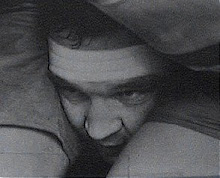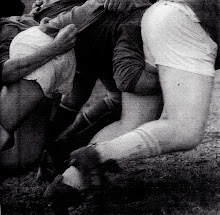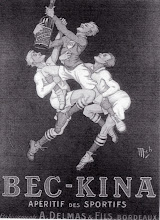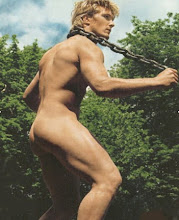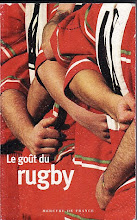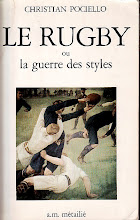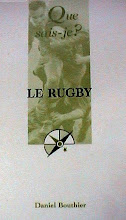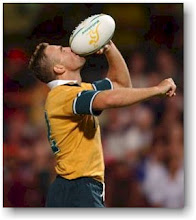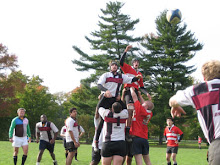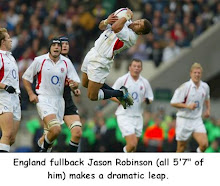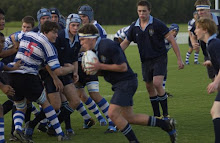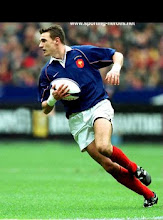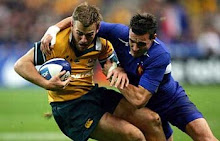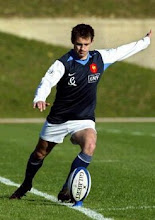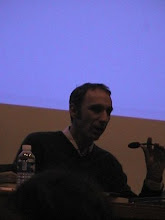 When I was 10 years old I made my first representative sporting team. I was called out after a tournament and stood in front of a crowd with my fellow team-mates. Everybody clapped us and I felt on top of the world.
When I was 10 years old I made my first representative sporting team. I was called out after a tournament and stood in front of a crowd with my fellow team-mates. Everybody clapped us and I felt on top of the world. Everyone in the team was given a shirt. Sometimes when I wore mine down the main street I saw people look twice. Sometimes they whispered or nudged and pointed - maybe they'd recognised me, because I was in the local paper too.
Even when you're young it doesn't take you long to realise that, right or wrong, the shirt and the article - the sport - make you special to people. That sense comes especially quickly when it is something that you're continually told. I kept making representative teams through the years and the coaches of them constantly reminded me of how talented I was. It was something repeatedly reinforced to me as I grew and something that, as a teenager, I easily accepted, as any would. The adulation of adults was only exaggerated when I was on the pitch and people were screaming for us.When you graduate from the junior grades and enter the top flight it's obvious that adoration takes a significant step up again.
The point of my seemingly endless ego ride is that I believe growing up with this as your experience makes it easy to believe that everybody loves you. That is simply not true, and someone who isn't a sportsperson can scoff at how ridiculous that sickening self-satisfaction sounds - I do now.
“But at the time I didn't have that perspective. As a "sportsperson" from a young age, I grew up in a sort of cultural vacuum. In so many ways I was separated from the rest of society and lived in a world where only myself and my team-mates trod.”
“But at the time I didn't have that perspective. As a "sportsperson" from a young age, I grew up in a sort of cultural vacuum. In so many ways I was separated from the rest of society and lived in a world where only myself and my team-mates trod.”
Also, it just didn't seem so stupid. When I was out people used to come up to me and my team-mates, often just to wish us well, and that made me feel even more exceptional. Plenty of them were women and some weren't so subtle about the fact they wanted to have sex with me.
Sometimes I would go up to a girl and get rejected. My reaction was often one of bewilderment. Why doesn't she adore me, if everyone else apparently does? The women I did sleep with sometimes didn't seem to care if it was me or any other member of my team. I felt it wasn't the actual person they wanted but just to sleep with a sportsperson.
As part of a team sport I felt like individuality was not needed or even wanted - everything we did, we did as a team. We sweated together at training and on the field we were told to sacrifice ourselves for our team-mates. "Don't let the man next to you down" was our unofficial motto.
If I made a mistake I wasn't angry with myself, I was upset at letting my team-mates down. I gained satisfaction not from my individual achievements but from my team-mates seeing what I would do for them.
I think that when you wake, walk and talk team ethic all day, every day, this is why sportspeople sometimes engage in group sex. There are plenty of women who choose to engage in it too - and enjoy it. Sportspeople are taught to conduct themselves as a group. Sometimes that team ethic extends to sex. And I don't see any issue with that - so long as all those involved consent to it at all stages.
I believe the trouble with some sportsmen can be that they are not conditioned to accept rejection or refusal. The process of being convinced that you are special often begins before you are even a teenager. The rules that apply to everyone else don't seem to apply to you.
Those who are too young or simply too immature to realise the psychological cocoon they inhabit as a sportsperson is an unreality may hear the word "no" but they do not accept it. The consequences of that can be horrendous…
1. David Elton. Football: 'I lived in a world where only me and my team-mates trod': A former rugby league player on the psychology of sex and stardom . The Guardian. London (UK):Mar 6, 2004. p. 2


